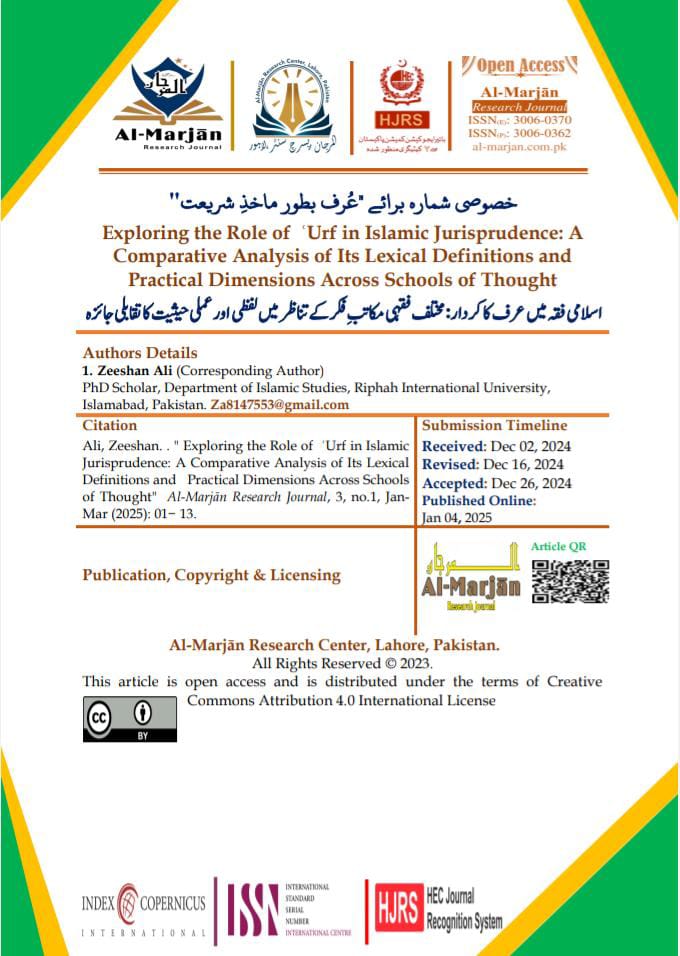Exploring the Role of ʿUrf in Islamic Jurisprudence: A Comparative Analysis of Its Lexical Definitions and Practical Dimensions Across Schools of Thought
اسلامی فقہ میں عرف کا کردار: مختلف فقہی مکاتبِ فکر کے تناظر میں لفظی و عملی حیثیت کا تقابلی جائزہ
Zeeshan Ali (Corresponding Author)
Keywords: Islamic Jurisprudence, Urf (Custom), Legal Maxims, Comparative Fiqh, Islamic Law
Abstract
The concept of ʿUrf (custom), encompassing both its lexical and practical dimensions, serves as a foundational element in Islamic jurisprudence, particularly in circumstances where explicit textual evidence from the Qur’an or Sunnah is absent. This study examines the role of ʿUrf in shaping jurisprudential theory and legal practice across historical and contemporary contexts. It addresses three primary questions: What are the lexical and practical understandings of ʿUrf in Islamic law? How do the major schools of thought—Ḥanafī, Mālikī, Shāfiʿī, and Ḥanbalī—interpret and apply ʿUrf? And what governing principles regulate its integration into legal rulings? Employing a comparative qualitative methodology, the research analyzes primary sources including the Qur’an, Ḥadīth, and classical legal manuals, along with secondary literature such as modern scholarly works and contemporary case studies. The findings demonstrate that ʿUrf continues to function as a vital tool of legal reasoning in the absence of direct scriptural guidance, though its scope and application vary among the schools. The Ḥanafī and Mālikī traditions show greater receptivity toward ʿUrf, incorporating local customs more flexibly, whereas the Shāfiʿī and Ḥanbalī schools adopt stricter evaluative criteria to ensure consistency with established religious principles. Ultimately, the research argues that ʿUrf occupies a dynamic position in the evolution of Islamic jurisprudence. Its careful and principled application allows Islamic law to remain both rooted in tradition and adaptable to changing social realities, thereby balancing divine guidance with practical human experience.


